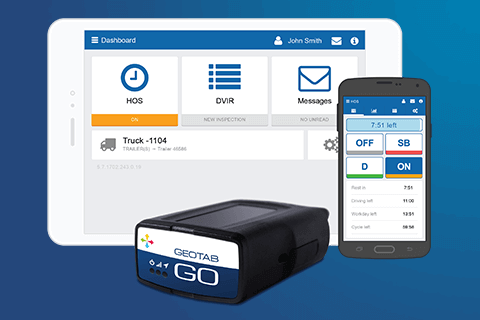
What You Need to Know About Truck Electronic Logging Devices
What You Need to Know About Truck Electronic Logging Devices
For years, truckers were forced to maintain a hand-written journal documenting their journeys and various aspects of their trucks, such as mileage and fuel use, as well as their hour-to-hour activities. This was difficult, tedious, and very prone to error – which was a problem when it was also the legally required activity log.
So recently, the Federal Motor Carrier Safety Administration (FMCSA) created a new standard for logging truck activities digitally. This centers around the use of a truck electronic logging device (ELD) to track and store vital data. ELDs are far more convenient than paper books, but there are still things that every driver or fleet manager should know about them.
Important Facts About Truck Electronic Logging Devices
1 – What do ELDs record?
Most ELDs are hooked directly into a truck’s systems, so they’re able to automatically record mileage, fuel use, and more. They can also keep track of a driver’s schedule, logging on-duty and off-duty hours, and help ensure a driver doesn’t stay on the road longer than they’re legally allowed to.
(And by the same token, they also make it far more difficult to fudge those numbers, a common issue with paper logs.)
2 – Who has to carry an ELD?
The vast majority of commercial long-distance vehicles are obligated to use ELDs. In particular, it applies to vehicles which:
- Weigh at least 10,000 pounds
- Transport 8+ people for compensation
- Transport 15+ people without compensation
- Transports hazardous materials which require placards
So, the regulations apply to everyone from truckers transporting food to commercial bus lines. There are very few exceptions.
3 – What are the exceptions to ELD regulations?
In a few situations, a driver may not be obligated to own or maintain an ELD. These are:
- The vehicle in question was manufactured before the year 2000 and therefore lacks the necessary electronic interfaces.
- Drivers who drive less than 8 days per month
- Drivers transporting vehicles for sale/lease/etc., if the vehicle they’re driving is also part of the shipment to be sold – such as a truck hauling other trucks.
4 – What ELDs are compliant with regulations?
There are dozens of choices in ELDs which have been certified by the FMCSA. The full list can be accessed here. In addition, smartphones can also be used as ELD, if it’s possible to directly connect the phone to the vehicle’s computer system.
Vehicle Licensing Consultants (VLC)
Have trouble owning and maintaining your ELDs? Vehicle Licensing Consultants can help. Our ELD devices have a lifetime guarantee. Click here to learn more.
